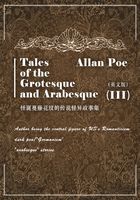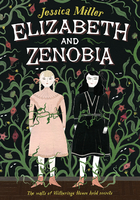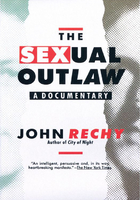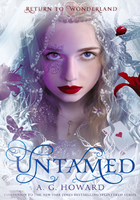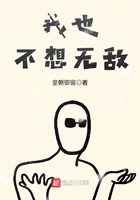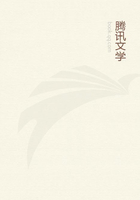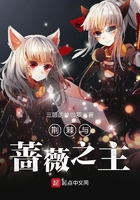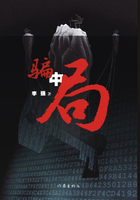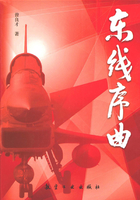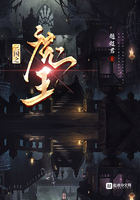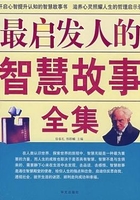Ismail Kadare was born in 1936 in the fortress-city of Gjirokast?r, in the southernmost part of Albania. He began writing poetry in his teens and acquired a national reputation while still a university student in Tirana. At the end of his course he was selected to pursue literary studies at the Gorky Institute for World Literature in Moscow. Twilight of the Eastern Gods re-creates Kadare's experience of this strange 'factory of the intellect', set up to produce new generations of socialist poets, novelists and playwrights.
In many respects Kadare had a wonderful time in Moscow. For a young man newly arrived from a provincial backwater, that vast city – the cultural as well as the political hub of half the world's people – was an unending treat. Unlike tiny Tirana, it had a Metro, electric trolleybuses, neon lights, department stores, and a veritable army of pretty girls far more open to romantic encounters than puritanical Albania could offer. As a foreign student, Kadare enjoyed many privileges, including free holidays at 'residences' in the more scenic areas of the Soviet Union which were put at the disposal of its members by the Writers' Union.
But Twilight of the Eastern Gods does not offer a warm or admiring reflection on the Big City where Kadare spent his two years of study abroad. It is a novel of profound disenchantment, in the tradition of Balzac's Lost Illusions, but with much about it that is quite particular to the privileged yet servile position of writers under Communism.
Outwardly, Kadare's Moscow years were very successful. A collection of his poetry was translated into Russian and published with a preface by the poet David Samoilov – the first of Kadare's many books to be translated into a foreign language. (Kadare gives an account of this publication in 'Truth, Secrets and Lies', a long interview published in English as an appendix to Chronicle in Stone.) The young Kadare also wrote his first major work in prose, a short novel titled The City Without Signs, the story of a literary-historical scam perpetrated by a brace of cynical and disaffected students. It was so disrespectful of political and cultural orthodoxies that Kadare did not even try to publish it until after the fall of Communism.
The inner reality was different. The professors at the Gorky Institute, the nature of the students selected for this prestigious institution, and, above all, the kind of writing that that was taught there brought Kadare to the brink of abandoning literature for good. Kadare didn't want to write about positive heroes with blond hair and jutting chins, maidens in dirndls setting out to upturn virgin soil, heroes of the Great Patriotic War or dreamy birch groves shading an idyllic collective farm[1]. In Moscow, Kadare learned to scorn virtually every aspect of the doctrines of Socialist Realism. The best he ever had to say about the course he followed there was that it taught him how not to write. The consistently rainy, foggy, cold and gloomy climate of Kadare's later fictions can be read as a formal rejection of the obligatory optimism laid down by the doctrines of Socialist Realism.
[1] The Soviet Union's involvement in the Second World War, that began only with the German invasion of 1941, has always been known in Russia as 'The Great Patriotic War'.
Post-war Albania, initially closely allied with neighbouring Yugoslavia, had been a virtual dependency of the USSR since 1949, and it housed the only Soviet submarine base in the Mediterranean. By the later 1950s, however, Enver Hoxha, the Albanian dictator, had grown increasingly alarmed by Khrushchev's attempts to liberalise Soviet society, which he saw as a betrayal of Stalin's legacy. The strained relations culminated in a meeting of the world's Communist Party leaders in Moscow in October 1960, which expelled Albania from the socialist bloc. (This meeting is the subject of Kadare's grand and dramatic Winter of Our Discontent.) Ironically, it was this political divorce that made it possible for Kadare to write and eventually publish Twilight of the Eastern Gods.
Like many of Kadare's major works, Twilight was written in pieces and rewritten in different ways over a long period of time. Its themes first appeared in a poem, Lora, written in 1961; the following year he wrote a short story, 'A Summer in Dubulti', which is the basis for Chapter 1 of this novel; other chapters followed in fragments over a period of fifteen years, and it was not until 1978 that The Twilight of the Eastern Gods was ready to be released – and almost hidden – in a collective volume that also included The Three Arched Bridge and The Niche of Shame. Even so, it was not really complete. It was translated into French by Jusuf Vrioni in 1981, and Kadare used this opportunity to smuggle back into the novel some of the more forthright passages about girls that had been omitted from the Albanian 'original'. This English translation has been done from the revised version in French first published in Volume 6 of Kadare's ?uvres complètes (Paris: Fayard, 1998.).
By the time of the first publication of Twilight as a book, of course, Albania, having broken off all relations with the Soviet Union long before, and having in addition already rejected its third major sponsor, China, found itself in a voluntary state of extreme isolation. The sour and searching critique of Russian literary life in Twilight of the Eastern Gods was therefore not politically contentious. Unless, of course, it was taken as casting indirect light on the treatment of literature in Albania itself. The censors in Tirana were either genuinely blind to this aspect of Kadare's novel, or else sufficiently wise to turn an officially blind eye.
The major public event that Ismail Kadare experienced in Moscow was the furore over the award of the Nobel Prize to Boris Pasternak. A member of an eminent pre-revolutionary family of artists and intellectuals, Pasternak had been educated in Germany and had emerged as a strikingly original poet around the time of the Russian Revolution. Unlike many of his relatives he chose not to emigrate, but pursued a career as an avant-garde writer throughout the 1920s. In the harsher atmosphere of the 1930s he devoted himself principally to translation, but also began work on an epic novel of a poet's life in the revolutionary period that would eventually become Doctor Zhivago. Finished in the early 1950s, Zhivago was turned down by the Soviet censors, but typescripts circulated among some groups of writers. The British philosopher Isaiah Berlin obtained a copy and smuggled it to Italy, where the left-wing publisher Feltrinelli brought out a translation in 1957. It was a sensation, and quickly translated into many other languages. Not a word of this was mentioned in the Soviet media until, in October 1958, the Swedish Academy announced that it had awarded the Nobel Prize for Literature to Boris Pasternak. In the Soviet Union, a vast, co-ordinated national campaign of denigration was launched against the author, forcing the now aged Pasternak to choose between declining the award and emigration. He took the first option.
The account of the Pasternak campaign given in Twilight of the Eastern Gods has nothing fictional about it: the discovery of a part of the typescript in the Writers' Union residence, the co-ordination of the press, radio and television campaign, the roles of specific individuals, right down to the inexplicably sudden halt – all these things really happened. (The excerpts from Doctor Zhivago given on page 60 were copied out of the French translation that Kadare was able to find on his later visits to Paris in the 1970s.) But it is also clear from this account of the persecution of Pasternak that Kadare could imagine finding himself in the same situation. In fact, by the late 1970s, Kadare's own eminence abroad, through translations of his novels into French, made him vulnerable inside Albania to accusations of being a Western stooge, an agent of capitalism or even a spy. Like Pasternak, Kadare did not abandon his homeland, however bizarre it had become. He certainly thought about defecting and even made quite detailed plans, but in the end his real response to the constraints of living as an international writer under a paranoid, isolationist Communist regime was to write a novel that is also a declaration of fidelity to Albania and its ancient folk culture.
That is the main reason why this comical send-up of Soviet literary culture is structured around the legend of Kostandin and Doruntine, a traditional Albanian story of fidelity to the given word. It is the main subject of Kadare's later novella, The Ghost Rider, where its deep connection to the idea of 'Albanianness' is made clearer. Like so many of Kadare's fictions, Twilight of the Eastern Gods is full of similar 'stubs' that serve as the central motifs of other stories and novels: readers will notice here what look like allusions to The General of the Dead Army, The Niche of Shame, and The Three Arched Bridge, but which are also in some part preliminary sketches of themes that constitute the main props and beams of Kadare's monumental, self-entwined and internally consistent oeuvre.
Twilight of the Eastern Gods is deeply rooted in Kadare's personal experience and in historical events, but it is neither an autobiography nor a work of history. The narrator is a young man very much like Ismail Kadare – he is even the author of a few lines of Kadare's verse – but he is nonetheless someone else. It is true that the real young writer had a good time with a number of Soviet girls: but none of them was called or even resembled Lida Snegina, as Elena Kadare has been able to establish in her remarkable investigation of her husband's early correspondence. Conversely, most of the teachers and students at the Gorky Institute portrayed in this novel bear the names of real teachers and students. They can all be seen in the class photograph of the 1958–1960 cohort, which is reproduced in the endpapers of this edition. As libel laws didn't exist in the Soviet Union or in Albania, Kadare felt no need to change names – but his caricatures of these variously slimy, self-serving, inauthentic, alcoholic, ignorant and otherwise comical 'students of literature' aren't intended to be individually accurate or fair, only to re-create in a work of literature the social and cultural environment in which Kadare felt so ill at ease.
He was unable to maintain contact with his classmates for many years owing to the break between Albania and the rest of the socialist world. In the 1980s Kadare tried to find out what had happened to them all, but learned only that Hieronymus Stulpanc had taken his own life. In 1988, he found Antaeus alive, well, and living in Athens.
Readers interested in these and other non-fictional characters mentioned in the novel can find basic details in the Index of Names on pp. 187–192.
Because the Gorky Institute was an international institution, its corridors buzzed with many different tongues, and Kadare pays considerable (and not always respectful) attention to the role that languages played in his education as a writer. The only common language among the students was Russian, but few of the characters in this novel speak it natively or even very well. Perhaps for that reason, the peculiarities of Russian grammar and pronunciation are frequently highlighted, and several passages in the novel seem to be essays on the meaning of particular Russian words. The whole of Chapter 1, for example, could be thought of as a riff on skuchno, the Russian word for 'boring' – boring to a heart-rending degree, a boredom bordering on spleen; whereas Chapter 2 focuses on a different variety of sourness that in Russian is called khandra.
In translating this novel from Jusuf Vrioni's French translation I have sought to hear the Russian in the conversations that Kadare reproduced in Albanian, and to give this voyage into a now vanished culture rather more of the original sounds and signs than Vrioni thought appropriate in 1981, when there were still several million French Communists, many of whom knew Russian quite well. I've tried as best I can to make the speech of the cultivated but also irreverent young people in Moscow literary circles as lively as it undoubtedly was, but without using expressions and phrases that weren't in circulation in 1959. However poor my deferred rendition of an Albanian original to which I have no direct access, I think Kadare's main qualities survive: his humour and his anger, his self-critical wit, and his conviction, all the stronger for having been put to the test by his Moscow years, that real literature is, in the end, more important than anything else.
David Bellos
Princeton, February 2014

